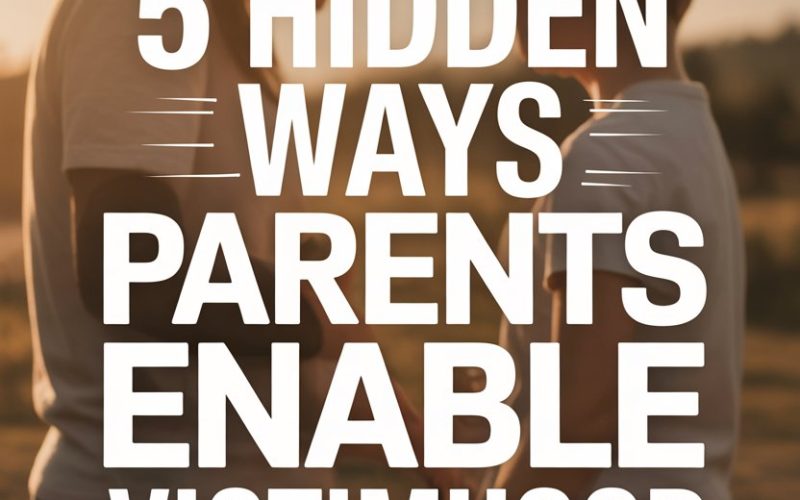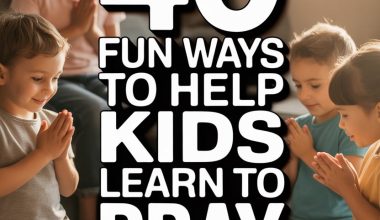Quick confession: Every parent has, at some point, done something utterly bonkers in the name of “helping” their child.
Maybe you’ve delivered a forgotten lunchbox to school (for the third time that week), or sprinted to the rescue the moment your toddler’s feelings flickered.
It’s not that we want to raise little drama magnets. Still, it’s all too easy to fall into habits that—without meaning to—teach kids to see themselves as powerless and hard done by.
And who needs another thing to feel guilty about, right? The upside: spotting these sneaky habits means you can swap them for simple tweaks tonight.
Here’s what’s worth a closer look.
1. Jumping in to Solve Every Problem
Who among us hasn’t swooped in faster than a superhero at the first sign of trouble? Wet socks at playgroup? You’re there with a fresh pair.
Argument with a mate? You’re texting the other parent before you’ve even heard the full story.
Kids notice. When adults step in at every hiccup, children start to believe the world is a place where things “happen” to them—and only grownups can fix it.
This is victimhood in its footie pajamas: “I can’t handle this, so Mum or Dad has to save the day.”
Instead, try swapping a swift rescue for a supportive nudge. For instance, if your child complains about a teacher being “mean,” ask, “What do you think you could say to her?” or “How would you like to handle it?”
Researchers from the University of Washington found children who brainstorm solutions with their parents, rather than receiving them on a silver platter, show stronger resilience and self-advocacy.
Plus, nothing builds confidence like knowing you can handle a sticky wicket yourself.
2. Apologising for Your Child’s Emotions
Picture this: your little one melts down at a birthday party, and you swoop in, offering not just tissues but also a string of apologies to the host, the birthday child, the family dog, and half the neighbourhood.
“He’s just tired. She’s sensitive. Sorry, sorry, sorry!”
While it’s tempting to smooth things over by explaining or excusing your child’s emotional outburst, this habit can send a wonky message: big feelings are embarrassing, troublesome, or someone else’s problem to fix.
Kids may start to see themselves as “too much” or believe their emotions are a burden to others—a core part of the victim narrative.
What helps? Acknowledge feelings without making them shameful. “Looks like you’re having a tough time. I get sad sometimes, too. Want a cuddle, or do you need some space?”
When you validate without over-apologising, you teach your child that feelings happen, they’re normal, and they don’t need to be packaged up for other people’s comfort.
3. Blaming Everything Else but Effort
The spelling test was “unfair.” The coach “just doesn’t like me.” It’s the teacher’s fault, the curriculum’s fault, maybe even the weather’s fault.
If your child’s favourite tune is “It’s Not My Fault,” and you find yourself humming along, you’re not alone.
Part of the job description includes defending our children.
Trouble is, if we always let them off the hook, it’s easy for kids to believe they’re perpetually at the mercy of outside forces—never their own effort or choices. We want them to feel heard, but not helpless.
The magic words: “What could you try differently next time?”
Research from Stanford psychologist Carol Dweck shows that kids praised for effort (“You worked really hard!”) instead of innate ability or blaming external sources are far more likely to develop grit and bounce back after setbacks.
Try getting curious together. “If the test felt tough, what might help you feel more ready next time?”
Or, “If your coach seems strict, what can you control—your attitude, your preparation?” Frustrating? Absolutely. Worth it? Without a doubt.
4. Over-Accommodating Fears and Discomforts
Shall we tally up all the things that make kids uncomfortable? Trying new foods. Sleeping in their own bed. Going to birthday parties. Wearing socks with even the slightest seam.
When we tiptoe around every discomfort (making special meals, letting them skip activities, bending bedtime rules after one protest), we accidentally teach that the world should adjust to their every feeling—that feeling uncomfortable means opt-out time.
Therapists who specialise in childhood anxiety, such as Dr. Eli Lebowitz, remind us that avoidance feeds fear. Each time we accommodate, we reinforce the belief that kids can’t handle distress.
That doesn’t mean tossing your child into the deep end and shouting “Swim!” Instead, try a gently supportive approach: “I know trying broccoli is new and you’re a bit nervous. How about a tiny bite, just to see?”
Or, “Staying at the party for twenty minutes is our goal today. I’ll be right here if you need me.” Progress, not perfection.
5. Modelling a Victim Mindset Yourself
Brace yourself—this one stings a bit. If you often find yourself saying things like, “The universe is out to get me,” or “I never get a break,” your little ones are soaking it up.
Kids are the world’s best mimics (except, of course, when you want them to mimic eating a vegetable).
When parents narrate life as a series of injustices or talk frequently about being powerless, children quickly adopt the same lens.
Suddenly, it’s “why does this always happen to me?” across the dinner table, not just during school pick-up.
There’s nothing wrong with acknowledging when things are tough. Still, try reframing your gripes.
“Today didn’t go my way, but I’m glad I can try again tomorrow.” Or, “That was a rubbish day—I’ll take a breath and start fresh.”
Psychologists call this a growth mindset. It sounds a bit like self-help mumbo jumbo, but the science is solid: kids learn to see setbacks as challenges, not proof they’re stuck as life’s unlucky underdogs.
Raising Capable, Not Coddled, Kids
Here’s the kicker: nearly every “enabling” behavior starts with love. We want to smooth the path, soothe the bumps, and keep our children from unnecessary hurt.
But those bumps and wobbles are precisely what grow grit, agency, and resilience—qualities our kids need more than a perfectly curated lunchbox or a spotless reputation.
Next time you spot yourself jumping to the rescue or apologising on your child’s behalf, give yourself a pat on the back for noticing. Then, toss a little responsibility—or a little discomfort—their way.
You’re not being mean. You’re giving them the best gift possible: the chance to see themselves as problem-solvers, not permanent victims.
Now, if only they’d try the broccoli.




